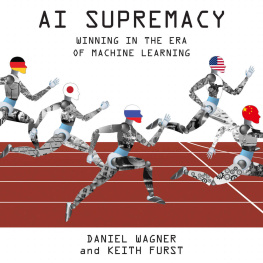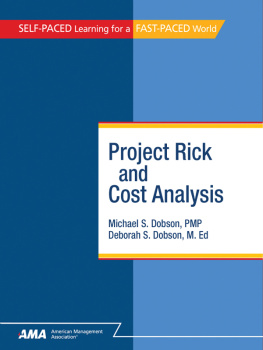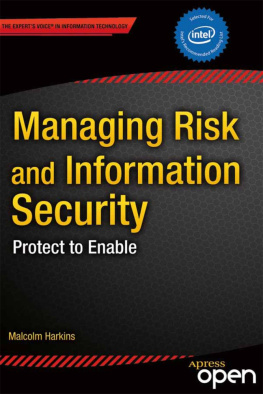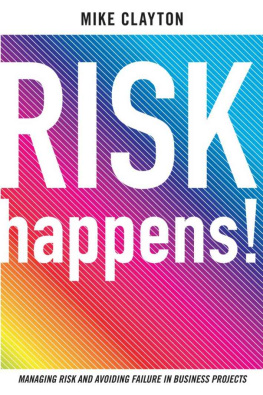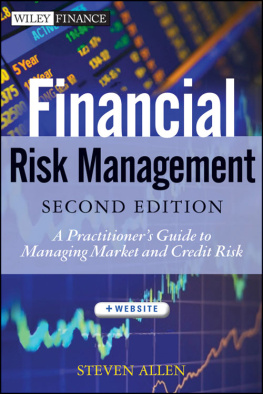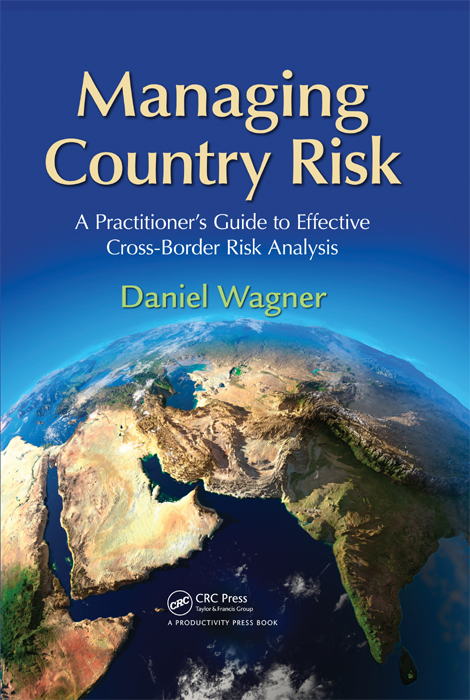Many important areas of modern finance lack that one solid, unbiased book that tells both the novice everything he or she needs to know about the subject, brings a coherent structure, and important, fresh insights to seasoned practitioners. Daniel Wagner has brought the world the go-to book on country risk analysis. Managing Country Risk provides a broad, deep, and accurately detailed analysis of country risk analysis tools and techniques in a volume unlike any I have read before. It is both timely and likely to enjoy a long shelf life.
Jeffrey Christian, Managing Director, CPM Group and author of Commodities Rising
Daniel Wagner has written an excellent, thought provoking, and well-crafted book that speaks directly to the needs of financial professionals tasked with navigating the complex world of cross-border risk analysis. Investment managers, commercial lenders, risk managers, and members of senior management will all benefit from the insights in this book, which provide the tools needed to make stronger, better, and more holistic global investment decisions.
Peter Went, Vice President, Global Association of Risk Professionals Research Center
Wagner carefully sorts through the fundamental principles of country risk management, adding context with examples from his quarter century as a political risk insurance underwriter, country risk manager, and advisor. The chapter on political risk insurance is the best comprehensive description of the product that I have seen. This book is an invaluable tool for the scholar and practitioner alike in understanding country risk and the techniques available to international investors and traders to address those risks.
Frederick E. Jenney, Partner, Project Finance & Development Group, Morrison & Foerster
I found great value in Daniel Wagners approach of combining 101 subject matter with graduate level country risk concepts, and was fascinated with the practical examples he used to drive the points home. I would think that this book would be of great value to a widely varied audience, including CEOs, CFOs, risk managers, directors of multinational boards, insurance underwriters and brokers, academics, and public sector practitioners.
Rod Morris, Vice President of Insurance, Overseas Private Investment Corporation
The first book that combines easily understood text, insightful analysis, and effective strategies to minimize the risks inherent in cross-border business transactions. I consider this book a must read for anyone charged with managing country risk.
Mark T. Williams, Executive-in-Resident/Master Lecturer, Boston University School of Management, and author of Uncontrolled Risk: The Lessons of Lehman Brothers and How Systemic Risk Can Still Bring Down the World Financial System
This book is a marvelous exploration of a mind trained to integrate all information on all subjects into a coherent viewpoint that produces a business decision. After a long career practicing this kind of thinking in both the public and private sectors, Wagners approach, and this book, are a treasure.
Dr. Paul Armington, President, World Institute for Leadership and Management in Africa
Managing Country Risk
A Practitioners Guide to Effective
Cross-Border Risk Analysis
Daniel Wagner
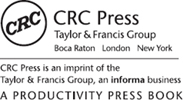
CRC Press
Taylor & Francis Group
6000 Broken Sound Parkway NW, Suite 300
Boca Raton, FL 33487-2742
2012 by Taylor & Francis Group, LLC
CRC Press is an imprint of Taylor & Francis Group, an Informa business
No claim to original U.S. Government works
Version Date: 20120316
International Standard Book Number-13: 978-1-4665-5895-3 (eBook - ePub)
This book contains information obtained from authentic and highly regarded sources. Reasonable efforts have been made to publish reliable data and information, but the author and publisher cannot assume responsibility for the validity of all materials or the consequences of their use. The authors and publishers have attempted to trace the copyright holders of all material reproduced in this publication and apologize to copyright holders if permission to publish in this form has not been obtained. If any copyright material has not been acknowledged please write and let us know so we may rectify in any future reprint.
Except as permitted under U.S. Copyright Law, no part of this book may be reprinted, reproduced, transmitted, or utilized in any form by any electronic, mechanical, or other means, now known or hereafter invented, including photocopying, microfilming, and recording, or in any information storage or retrieval system, without written permission from the publishers.
For permission to photocopy or use material electronically from this work, please access www.copyright.com (http://www.copyright.com/) or contact the Copyright Clearance Center, Inc. (CCC), 222 Rosewood Drive, Danvers, MA 01923, 978-750-8400. CCC is a not-for-profit organization that provides licenses and registration for a variety of users. For organizations that have been granted a photocopy license by the CCC, a separate system of payment has been arranged.
Trademark Notice: Product or corporate names may be trademarks or registered trademarks, and are used only for identification and explanation without intent to infringe.
Visit the Taylor & Francis Web site at
http://www.taylorandfrancis.com
and the CRC Press Web site at
http://www.crcpress.com
I dedicate this book to my spouse, family, and friends, who have
all been an incredible source of love and support over the years.
Thank you for being there throughout the ongoing journey.
Contents
Empirical Studies Can Yield Contradictory
Results
List of Tables
List of Figures
List of Maps
Preface
Almost any event can increase a traders, investors, or lenders cross-border risk. An unexpected resignation, a terrorist act, or a currency collapse can completely transform the political and economic landscape of a country, a region, or the world. Since the advent of globalization, politics and economics have been forever entwined, sometimes resulting in calamitous outcomes. There have been several sobering examples over the past two decades, including the collapse of the Thai baht in 1997. The sudden and dramatic collapse of the Thai currency set off a chain of events that ultimately led to the economic meltdown of many of Asias economies, resulted in the overthrow of the Indonesian government, and sent gyrations across the rest of the world.
One of the disadvantages of globalization and instant communications is that the impact of such change is felt instantaneously. Today there is less time to react before someone else does; we may be sleeping while others are reacting. Perhaps the impact of localized economic and political events would not be so dramatic if the international marketplace were not so interconnectedif currency and stock trading did not occur and information were not broadcast 24 hours per day. The trend toward seamless international financial transactions has continued at an even more breathtaking pace over the past decade.
One action or event that may be forecast to have a certain outcome at a certain point in time may end up having a completely different or unanticipated outcome years later. For example, when former US President Carter granted ownership of the Panama Canal to Panama in 1978, who would have imagined that, in 1999, when ownership was actually transferred, a Hong Kong company (Hutchison Whampoa) would spread enough money around the power brokers in Panama City to buy control over the ports at both ends of the canal? As a result, some would argue that China instantly gained the potential ability to influence the flow of global trade. On the flip side, by granting the concession to operate the ports to Hutchison, Panama, which has no national army, virtually guaranteed that US military influence would be present in the country for decades to come. This, in turn, will impact how future US military budgets are allocated and how US tax dollars are spent.


